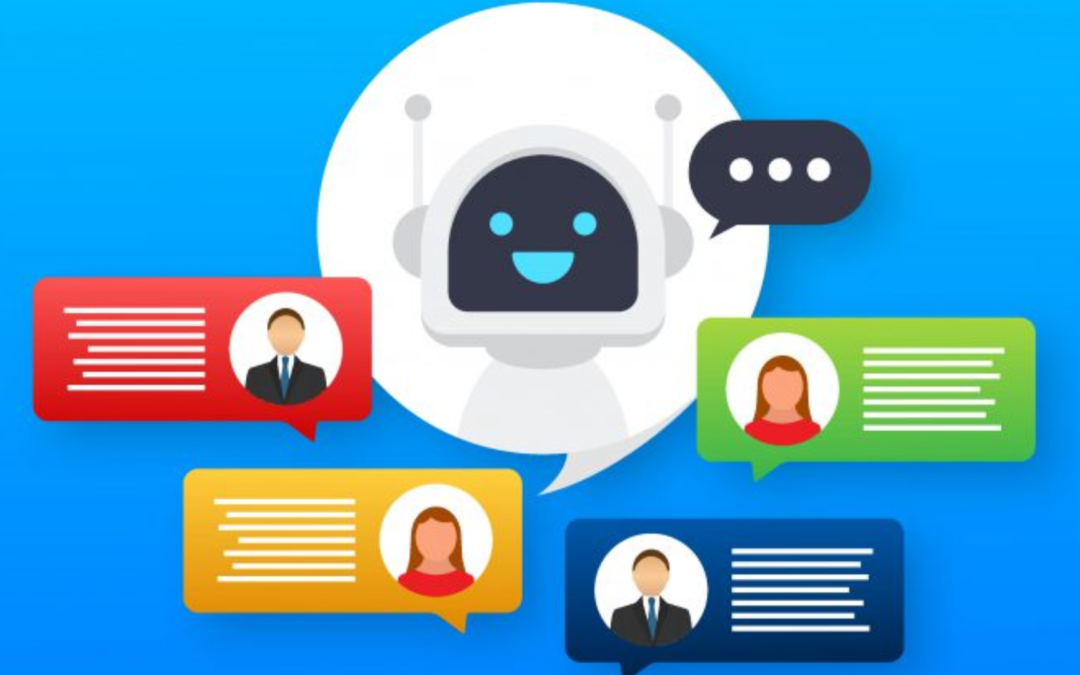Introduction
Customer service is crucial for the success of any business. It not only helps in retaining customers but also builds loyalty and trust, which directly affects a company’s profits. As technology continues to advance at a rapid pace, traditional customer service methods have undergone significant changes, giving way to new and innovative solutions.
Technology has completely changed the way businesses interact with their customers. What used to be simple phone calls and emails has now evolved into complex digital interactions. In the past, companies relied on basic tools like email support or call centres to handle customer queries. However, things have changed drastically today with the integration of advanced technologies such as AI (Artificial Intelligence) and machine learning.
Smart automation is leading this transformation by redefining how businesses communicate with their customers. This cutting-edge technology uses AI-powered tools to automate repetitive tasks, provide instant responses, and deliver personalized experiences. As a result, smart automation improves customer engagement, enhances service efficiency, and ultimately leads to higher levels of customer satisfaction.
By embracing smart automation in their customer service operations, businesses can stay competitive in an ever-changing digital marketplace. In the following sections, we will take a closer look at how this game-changing technology is revolutionizing customer service and explore its various applications and advantages.
The Role of Automation in Customer Experience Enhancement
Automation transforms customer experience by significantly enhancing engagement, loyalty, and service efficiency. Incorporating AI-powered chatbots into your customer service strategy provides immediate responses, ensuring that customers receive timely assistance without delay. These chatbots excel at handling multiple conversations simultaneously, improving overall responsiveness and reducing wait times.
Automated systems also play a crucial role in integrating with CRM systems. This integration allows for highly personalized interactions based on individual customer data and preferences. For instance, automated workflows can trigger personalized messages or offers, creating a more tailored customer experience.
Key Benefits:
- Enhanced Engagement: Automated responses ensure customers remain engaged without feeling neglected.
- Increased Loyalty: Personalized interactions foster a sense of loyalty among customers.
- Service Efficiency: By automating routine tasks, agents can focus on more complex issues, improving service quality.
Example:
“Consider an online retailer using AI-powered chatbots to handle common inquiries such as order status or return policies. Meanwhile, CRM integration allows the system to send personalized follow-up emails based on previous purchases, enhancing the overall customer journey.”
Automation is not just about efficiency; it’s about creating a seamless and engaging experience that builds trust and fosters long-term relationships with your customers.
Enhancing Operational Efficiency through Automation
Automation significantly enhances operational efficiency by automating routine tasks, allowing customer service agents to focus on resolving complex issues. Tasks like ticket sorting, basic inquiries, and data entry can be handled by automated systems, freeing up human resources for more nuanced interactions. This not only boosts productivity but also ensures faster resolution times.
Leveraging data insights is another key aspect. Automation tools collect and analyze vast amounts of customer data, providing actionable insights that can be used to tailor personalized experiences. For example, using historical data and interaction patterns, businesses can predict customer needs and proactively offer solutions, thereby improving service quality.
Creating cohesive brand experiences is crucial for building trust and loyalty. Automation helps maintain consistency across various channels, ensuring that customers receive the same level of service whether they interact via email, chat, or social media. This uniformity reinforces brand reliability and fosters a deeper connection with customers.
- Automated Routine Tasks: Frees up agents for complex issues
- Data Insights: Enables personalized customer experiences
- Cohesive Brand Experiences: Builds trust and loyalty through consistent service
By integrating these elements into customer service operations, businesses can deliver efficient, high-quality service that meets modern expectations.
Implementing AI-Powered Chatbots for Efficient Customer Service
AI-powered chatbots revolutionize customer service by offering personalized responses and recommendations based on customer data. These intelligent systems analyze previous interactions, purchase history, and preferences to tailor their replies, making each interaction unique and relevant. This personalization fosters stronger customer relationships and enhances the overall customer experience.
Self-service options play a crucial role in empowering customers. By enabling users to find solutions independently, businesses can reduce the volume of inquiries handled by human agents. These options include knowledge bases, FAQs, and interactive troubleshooting guides, which not only save time but also improve satisfaction by providing quick and accurate answers.
Case Studies of Successful Implementation
- H&M: The global fashion retailer implemented an AI-powered chatbot to assist customers with outfit suggestions based on their style preferences and past purchases. This initiative led to a significant increase in engagement and customer satisfaction.
- KLM Royal Dutch Airlines: KLM’s AI chatbot handles over 16,000 interactions weekly across various platforms including Facebook Messenger and WhatsApp. The chatbot provides timely flight information, booking details, and travel recommendations, enhancing the travel experience for passengers.
- Sephora: The beauty retailer leverages chatbots on multiple channels to offer personalized product recommendations, book in-store appointments, and provide makeup tutorials. This seamless integration of AI into their customer service strategy has resulted in higher conversion rates and improved customer loyalty.
Implementing AI-powered chatbots not only streamlines operations but also ensures that customers receive immediate, personalized assistance tailored to their needs.
Utilizing CRM Systems for Personalized Customer Interactions
CRM systems are crucial in delivering highly personalized experiences tailored to individual customer preferences and behaviours. By using customer data, these systems create detailed profiles that guide interactions and recommendations. This level of personalization builds loyalty and involvement, making sure customers feel valued and understood.
Seamless multi-channel interactions are essential for providing consistent and convenient customer experiences. CRM systems combine different communication channels—email, social media, phone support—into one platform. This centralized approach allows businesses to have a unified view of customer interactions, ensuring clear and timely responses across all points of contact.
Case Studies: Effective Use of CRM Systems
Here are some examples of how companies have successfully utilized CRM systems:
- Company A: This company implemented a CRM system to track customer interactions across multiple channels. As a result, they saw a 25% increase in customer satisfaction scores because they were able to provide more personalized and timely responses.
- Retailer B: Using CRM data, this retailer was able to customize their marketing campaigns based on individual shopping behaviours. The outcome? A 30% increase in repeat purchases, proving the effectiveness of personalization in driving customer loyalty.
These examples demonstrate how CRM systems can improve customer interactions, leading to greater efficiency and satisfaction.
Understanding the Impact of Automation on Customer Service Metrics
Automation has a significant impact on customer service metrics. Key performance indicators such as customer satisfaction, loyalty, and response speed show significant improvements with the integration of automation.
Customer Satisfaction
Automated systems provide immediate responses and seamless interactions, which elevate the overall customer experience. With chatbots handling routine inquiries efficiently, customers receive timely resolutions, enhancing their satisfaction levels.
Loyalty
Personalized automated responses foster a sense of recognition and importance among customers. When interactions feel tailored to individual needs, it builds trust and loyalty, encouraging repeat business.
Response Speed
Automation dramatically reduces response times. AI-powered tools can handle multiple queries simultaneously, ensuring that customer issues are addressed swiftly without long wait times.
Automation aligns seamlessly with business goals by improving customer experience and driving operational excellence. For instance, integrating CRM systems with AI allows for data-driven decisions that enhance service quality while reducing operational costs.
The Future of Customer Service with Smart Automation
Smart automation is set to transform customer service in unprecedented ways. As technology continues to advance, new possibilities emerge for enhancing customer interactions and improving service efficiency. Here are some key areas where smart automation will shape the future of customer service:
1. AI and Machine Learning
These technologies will further refine automated responses, enabling systems to learn from each interaction and continuously improve. This means more accurate and contextually relevant responses, leading to higher customer satisfaction.
2. Natural Language Processing (NLP)
With advancements in NLP, chatbots and virtual assistants will better understand and respond to human language nuances. This will allow for more natural and effective conversations, bridging the gap between automated systems and human agents.
3. Predictive Analytics
Leveraging big data, predictive analytics can foresee customer needs before they arise. By analyzing past behaviors and trends, businesses can proactively address issues, offer personalized solutions, and enhance overall customer experience.
4. Omnichannel Integration
Future automation tools will seamlessly integrate across various communication channels—email, social media, live chat—providing a unified view of customer interactions. This ensures consistency and enhances the quality of service regardless of the platform used.
5. Robotic Process Automation (RPA)
RPA will handle more complex tasks beyond basic queries. From processing returns to managing subscriptions, RPA can streamline numerous backend operations, freeing up human agents to focus on higher-level customer interactions.
Smart automation promises a future where customer service is not only efficient but also deeply personalized. By embracing these advancements, businesses can stay ahead in delivering exceptional customer experiences.
Conclusion
Using smart automation is essential for staying competitive in today’s customer service landscape. These technologies allow businesses to provide excellent customer experiences while still being personal. By using smart automation, you can:
- Improve customer satisfaction and loyalty
- Make operations more efficient
- Give personalized, quick answers with the help of AI
Adopting these innovations not only changes how customer service works but also sets your business up for long-term success.
If you’d like to find our more about automation and chatbots, visit our website here or book a demo direct.


